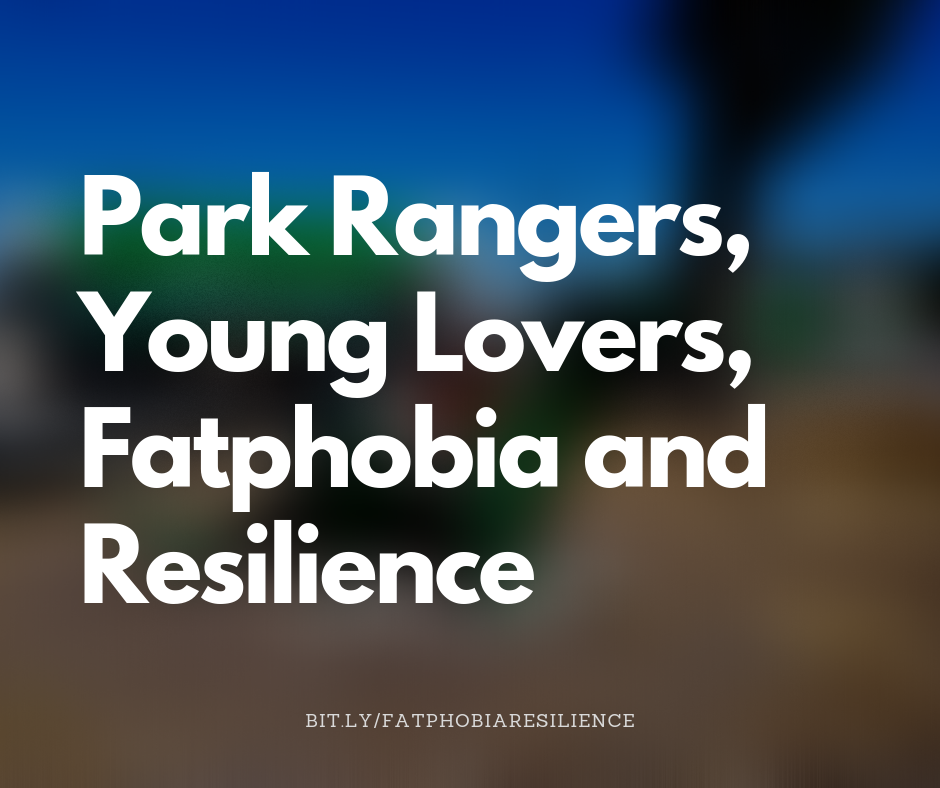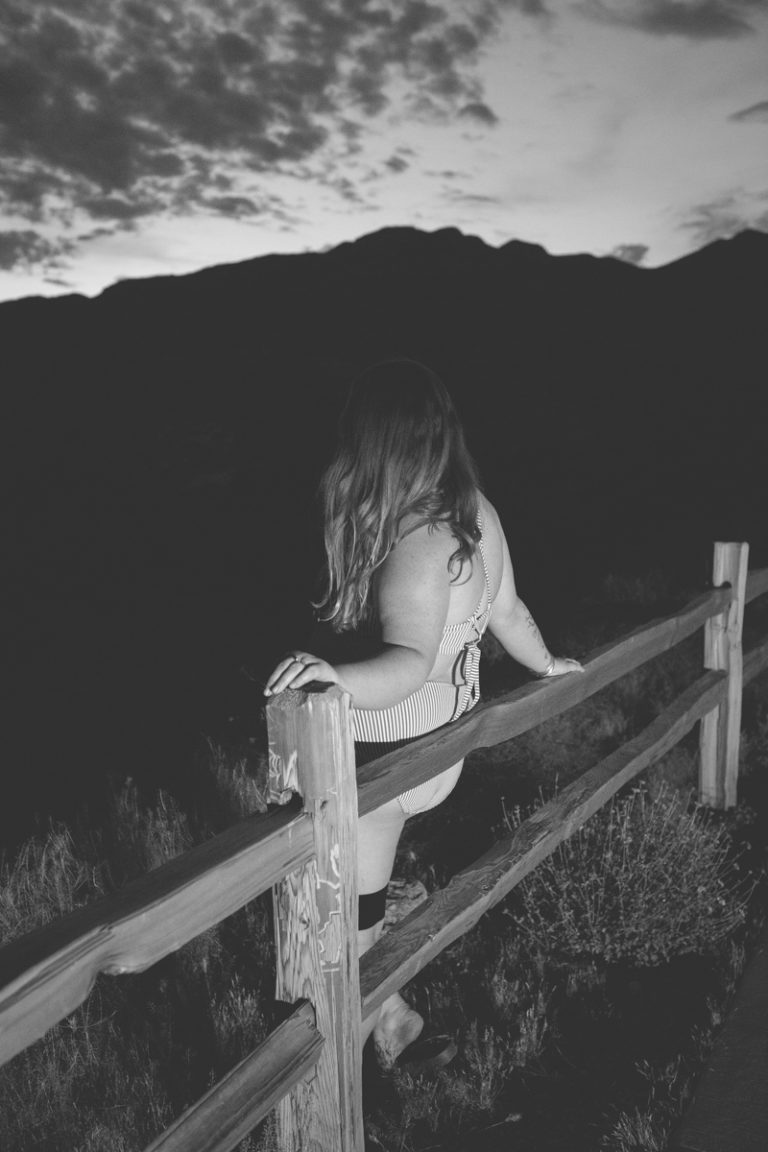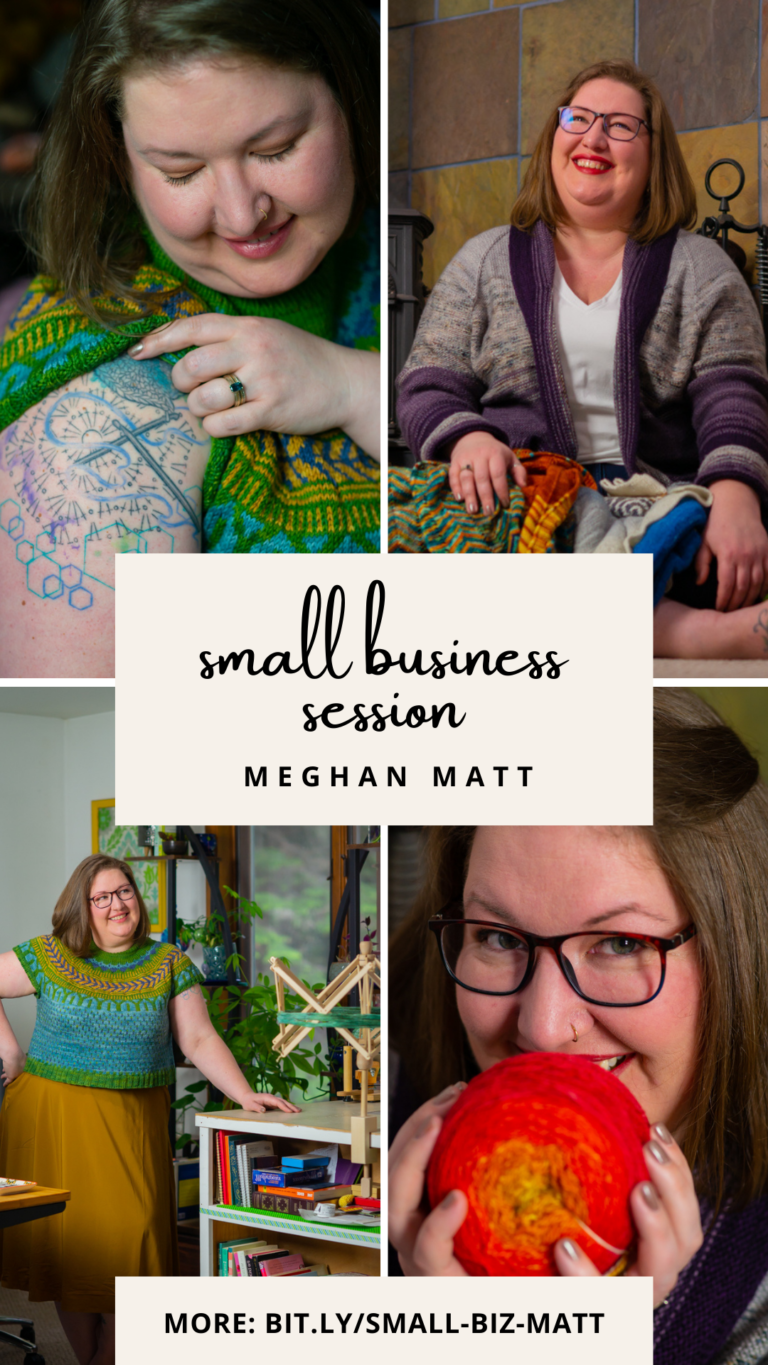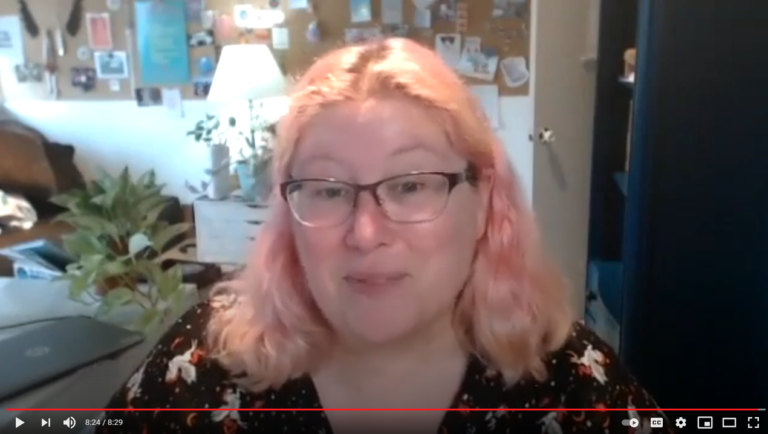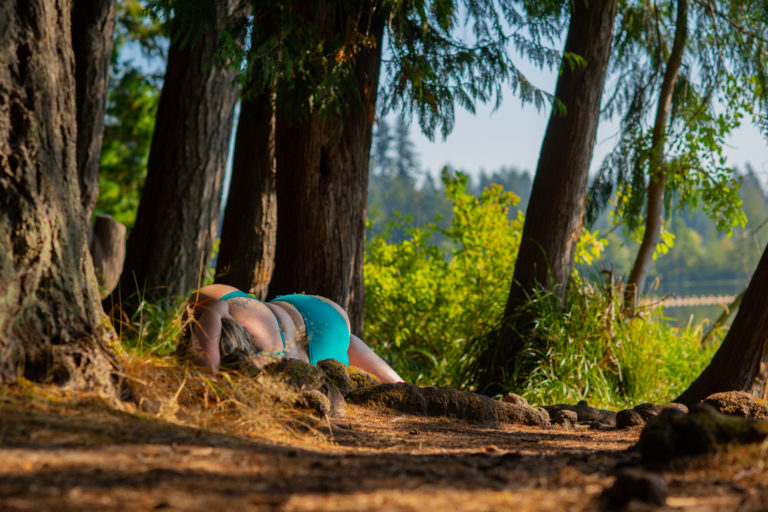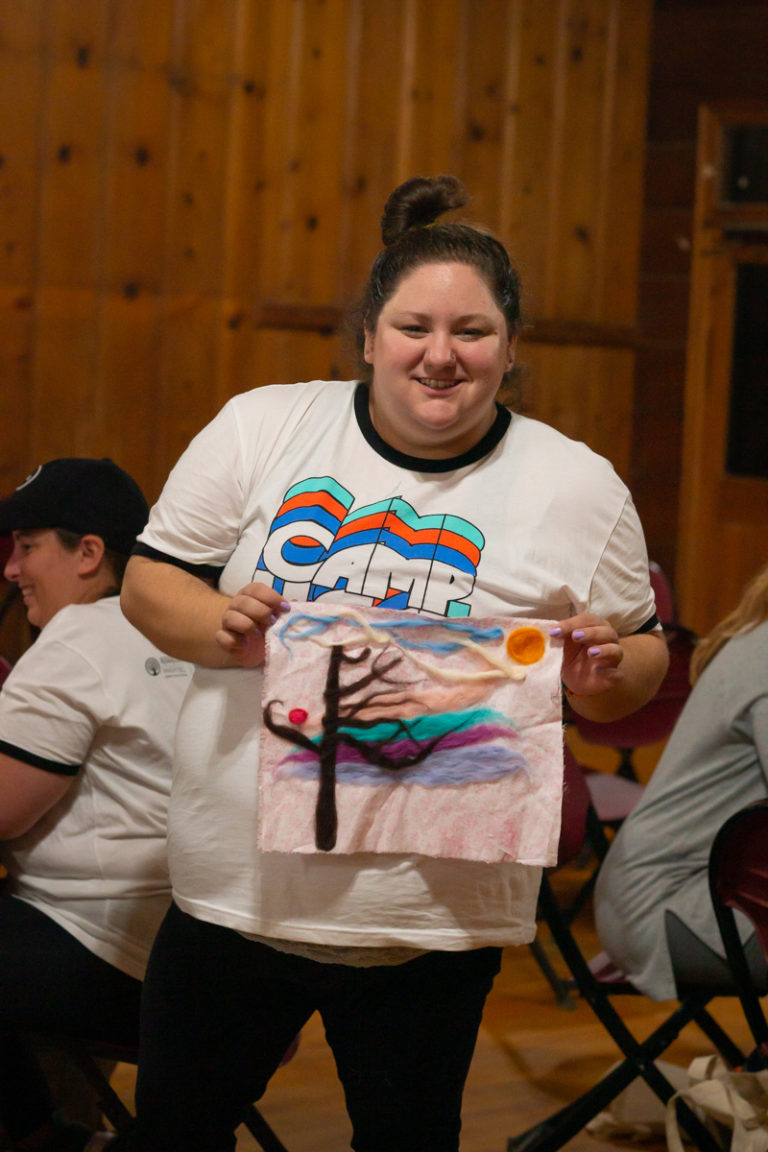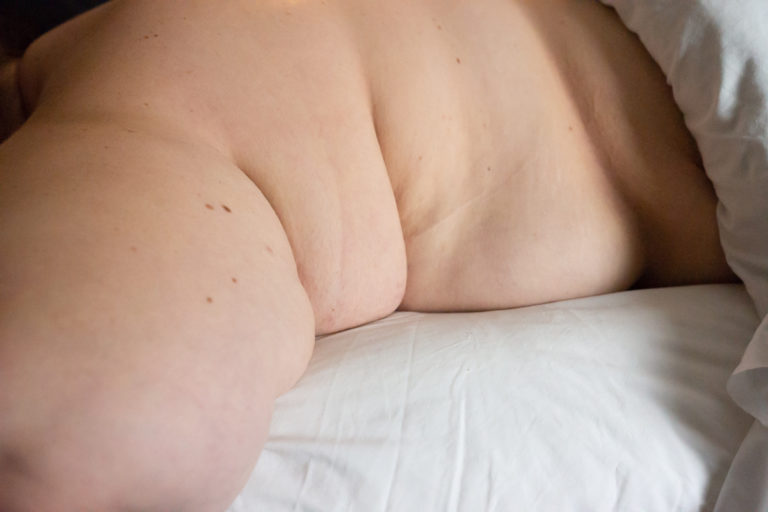Park Rangers, Young Lovers, Fatphobia and Resilience
I went on a trip! It was lovely! At least, most of it was.
People in small bodies go out in public and come home with lovely memories. People in fat bodies go out in public and come home with thorns among the roses.
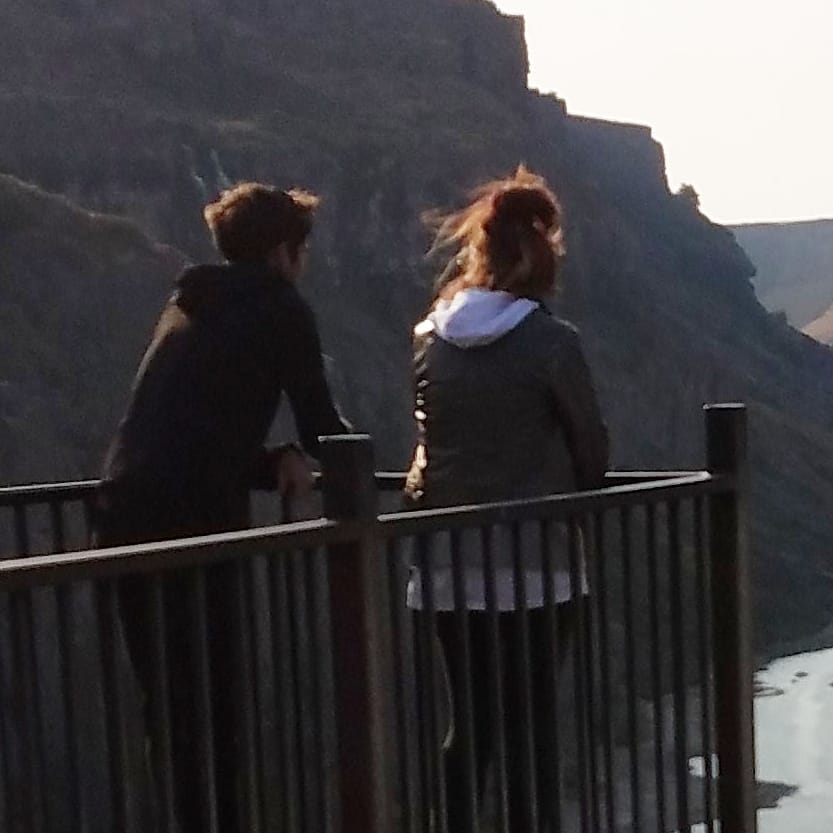
The Young Lovers
This is the couple who wanted my spot at the otherwise-empty section of overlook at Shoshone Falls one day.
This is the man who crowded me at the railing despite there being plenty of room. This is the man who bumped me twice. This is the woman who sighed reeeeeeally loudly. This is the man who watched me until I tried to record a quick video with my phone and then started talking loudly.
This is the man who, when I gave up my nice spot and rejoined my husband at another section of railing, took a photo of us. Openly and obviously. And then turned around repeatedly from the spot he’d forced me out of — where the woman is standing in the photo above — to stare at us.
(Note that I would, in normal circumstances, never ever take a photo of someone without consent. This was not normal circumstances.)
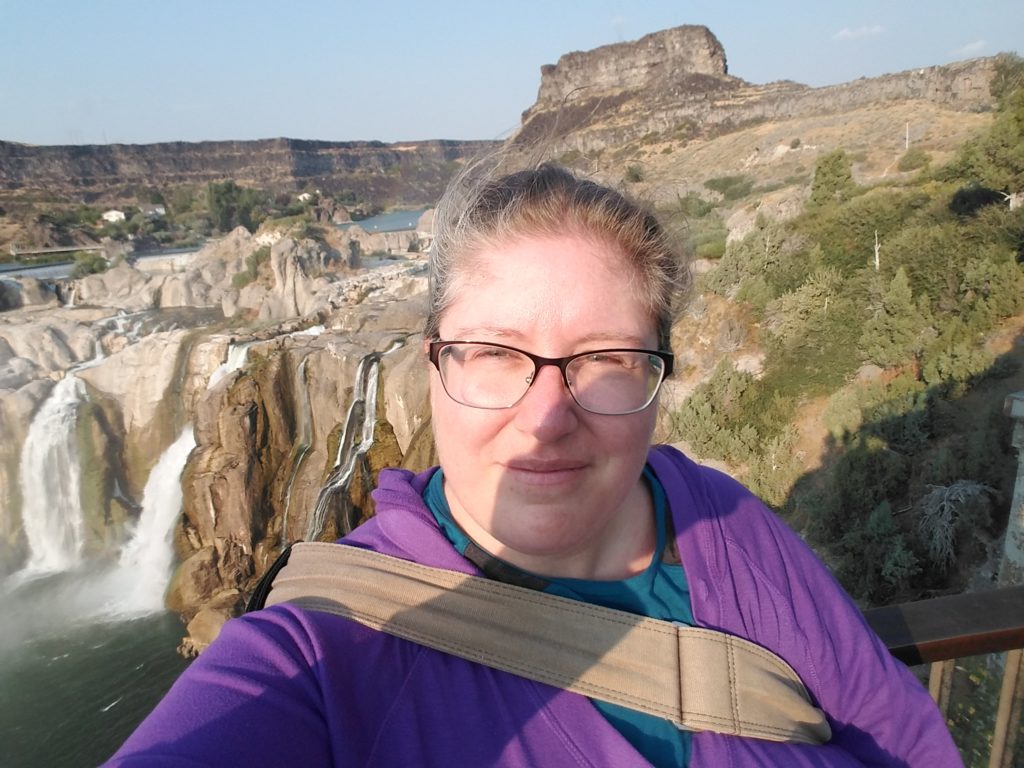
The Ranger
One of my great delights in traveling in the U.S. is the conversations I have with state and national park rangers. They’re knowledgeable, generally really friendly, and have great stories to tell. One of the highlights of my June road trip was talking with a park ranger at Bannack State Park in Montana about local invasive plant species, flower identification and the massive flash flood that hit the historic town in 2013.
When we stopped at the National Elk Refuge in Wyoming, I waited in line behind an older, thin couple to talk to the rangers there about whether the animal I’d seen that morning was a female mule deer or female elk. The two rangers at the information desk, also older and thin, had a cheerful, enthusiastic conversation with the couple.
When the couple turned away, I stepped up and smilingly said that I had both a question and an enamel pin to buy, and asked if I should do both right here (since the rangers were near a cash register). The female ranger replied, in a tone of completely disproportionate disgust, “You need to make your purchase over there,” and pointed to the unstaffed register.
Taken aback, I smiled some more and tried again with, “I saw what was either a female mule deer or female elk this morning and would appreciate some help figuring out which.”
The female ranger turned and walked away, leaving the male ranger to deal with me. He replied with open scorn, “The female mule deer is obviously much smaller. There’s no way you could mix them up. How could you not tell them apart?”
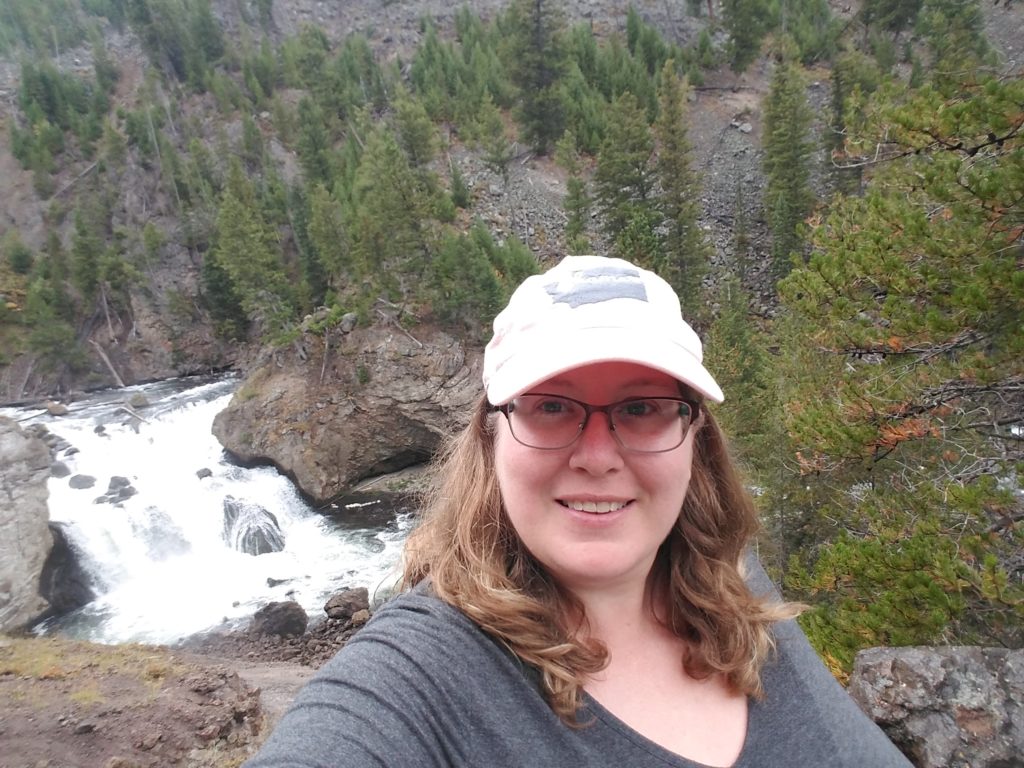
My jaw quite literally dropped. He’d been so friendly and helpful to the previous couple, and given that I had only seen one of the two animals — not both standing helpfully together for a size comparison — I didn’t think my question was that ridiculous.
As I stood in shock, he continued with “I can’t believe you could possibly mix those up,” then started talking about the obvious differences between the male mule deer and male elk, neither of which I’d seen anyway. I stammered out a polite thank-you and escaped.
(It was a female elk, which I figured out myself from looking at the exhibits in the visitor center.)
The Grilled Cheese Enthusiast
The Oregon coast’s Tillamook Creamery is a tourist-laden cheese wonderland, from ginormous bins full of packs of cheese curds to ginormous blocks of cheddar to ginormous plates of freshly-made cheese fries.
My fat husband and I were splitting one of the ginormous plates of cheese fries, sitting across from one another at one of the restaurant’s long picnic-table-style tables, when an older woman and her thirty-something attendant (relative?) asked if we minded if they sat at the end of the table. Of course not, we replied. The younger woman sat next to me and the older woman sat at the end, facing us.
The two women chatted with each other, mostly inaudible in the ginormous echoing space, until their food arrived. Then the older woman looked at her ginormous grilled cheese sandwich, then looked up at us.
She stopped dead, then proceeded to openly stare at us for a full two minutes while we enjoyed our fries (among a hundred mostly-thinner people doing the same thing all over the room).
Then she looked at her companion and said, as loudly as she could manage, something about grilled-cheese sandwiches being a once-a-year treat for her, and spent the next five minutes talking about salads.
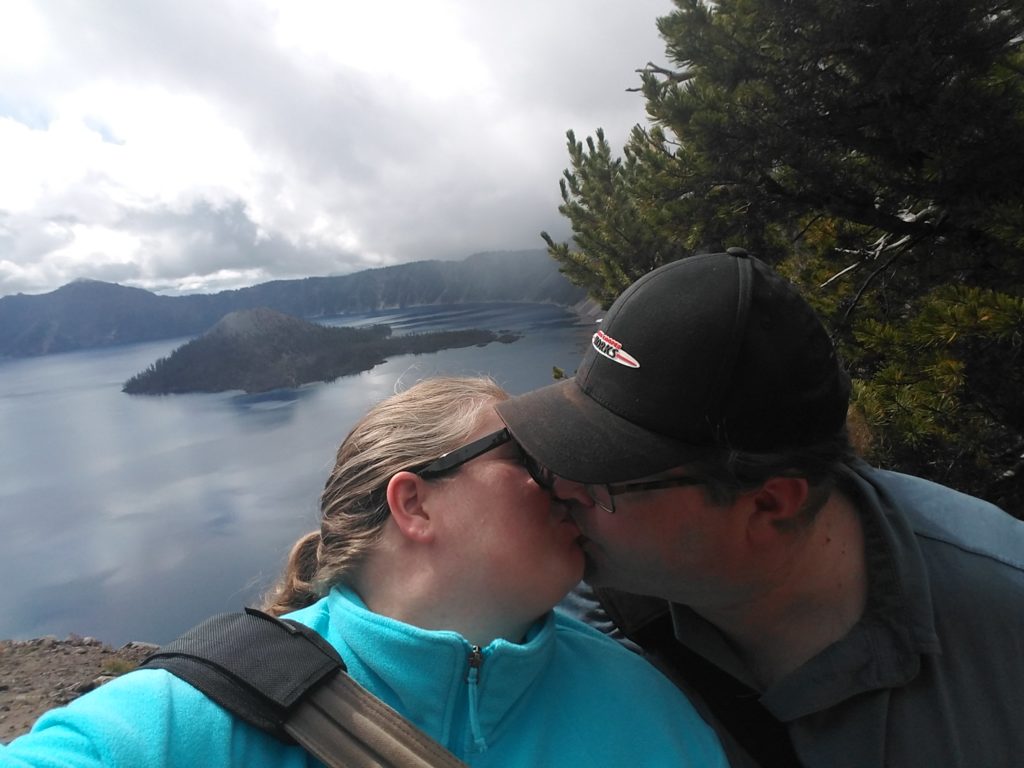
Fatphobia and Resilience
One of the biggest consequences of discrimination and abuse is that it lowers our resilience. When fat people are constantly mistreated in public, it lowers our emotional resilience to deal with the normal issues that come with adulting. When fat people are discriminated against in hiring, it lowers our financial resilience. When I have to spend ten minutes every day deleting and blocking online trolls, it lowers my mental resilience to be exposed to so much constant hate and occupies time I could be spending on other things. When I have to spend time writing posts like this, it takes up time that I could be doing something — anything — else.
When I was publicly mistreated three times in two weeks due to my fat body, it lowered my resilience and my ability to deal with being woken up screaming at 4:30 this morning when someone set off 45-60 seconds of firecrackers right outside my house. I genuinely thought I was going to die in drive-by gunfire. I sat up for half an hour, shaken and nauseated, and never did really get back to sleep.
(After two minutes of googling, it looks like someone spent $50 to do this. That’s a lot of money to troll random people. If it was random. It also left a 30-yard-long swath of shredded bright red paper and spent shells that I get to spend my weekend cleaning up.)
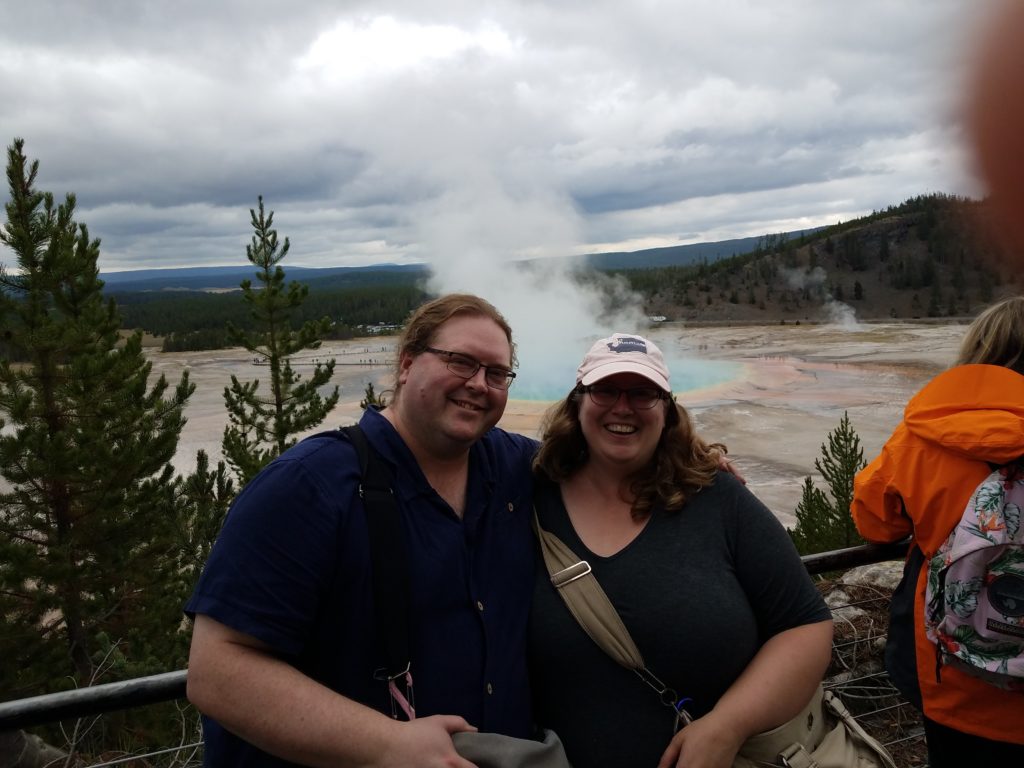
Another aspect of the way fat people are treated is that so much of it is plausibly deniable.
- In another incident I didn’t mention above because it was so easily deniable, did the man who approached me at a campground and aggressively asked me if I was finding everything okay — when I was definitely not wandering around looking lost — do it because of my body, or due to some other reason?
- Do fat people get fewer social media followers and have a harder time running businesses due to systemic discrimination and cultural nonsense, or because we just don’t measure up in creating engaging posts and drawing people in?
- Was the firecracker incident trolling of the fat neighbors, or completely random? How about the egging of our car the week we moved into this house, four years ago?
- Did I lose out to another job candidate after the in-person interview (after promising phone interviews) because the other candidate was really better, or because of my body?
- Can I not find clothing in my size due to fatphobia, or is it really just that impossibly hard to offer clothing in large sizes?
- Was the grilled-cheese woman’s staring at us and then talking loudly about salads completely coincidental? Did the park ranger just hate my hairstyle?
When our cultural zeitgeist maintains that fat people uniformly lie about their food intake and exercise levels (because otherwise, they wouldn’t be fat), it’s a perfectly natural extension to assume we lie about the way we’re treated as well. So the real kicker is that when we talk about the way we’re treated, it’s easy to assume we’re exaggerating (when the incident is remotely deniable) or lying outright (when it’s not).
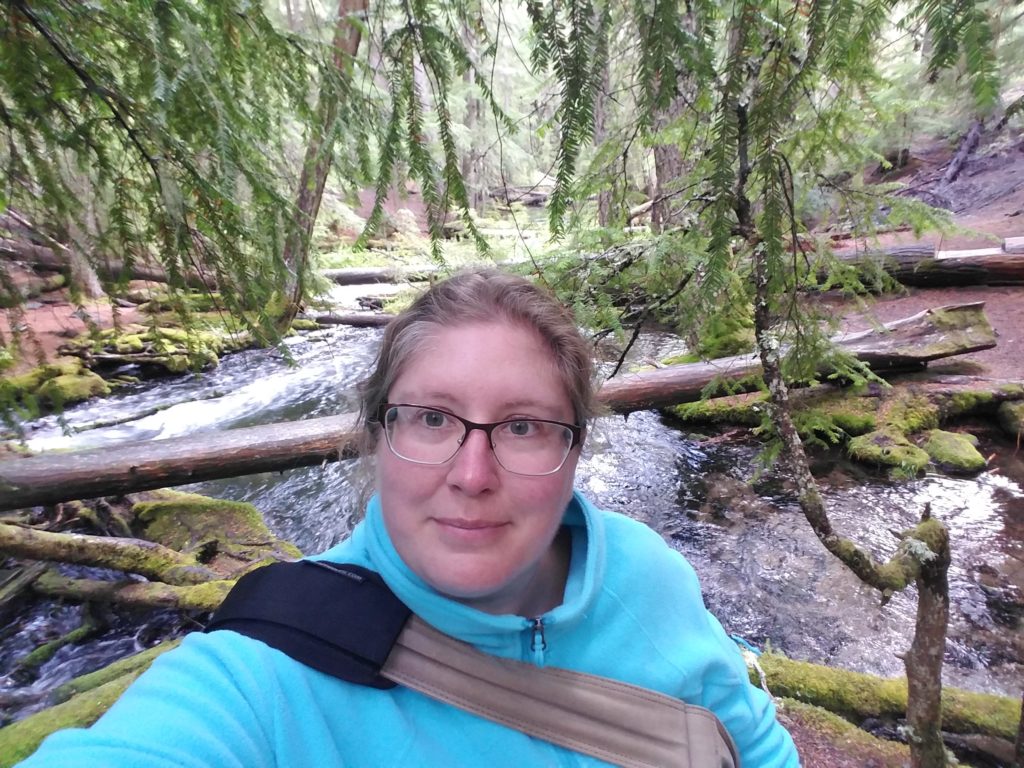
We can talk about it till we’re blue in the face — and we have to, to even start to be believed. For every one person who reads this post and believes that I’ve presented an accurate version of events, three will read it and assume I’m exaggerating or making things up. This is part of the system. Set marginalized people up as liars, and you can continue abusing them with impunity, because no one will believe them anyway.
And yes, of course the onus of someone’s bad behavior is on them. But that’s how abuse is enabled and dismissed: “Don’t let it hurt you!” “They’re just unhappy people!” “Don’t dwell on the negative!” “The only thing you can control is your reaction!”
Don’t be that person. Unchecked, rampant fatphobia (as well as the more subtle versions) is more than just hurtful. It’s not like people are able to turn off their fatphobia at will. These people are also our doctors, our hair stylists, our hiring managers, our insurance adjusters. They decide whether we deserve bank loans for our small businesses. They decide whether we get proper healthcare. They decide whether we get the correct change at the grocery store. They decide whether we get the food we ordered at the restaurant. They decide whether we get to see the waterfall. They decide whether we get a seat on the bus. They decide how our lives will be ordered and experienced.
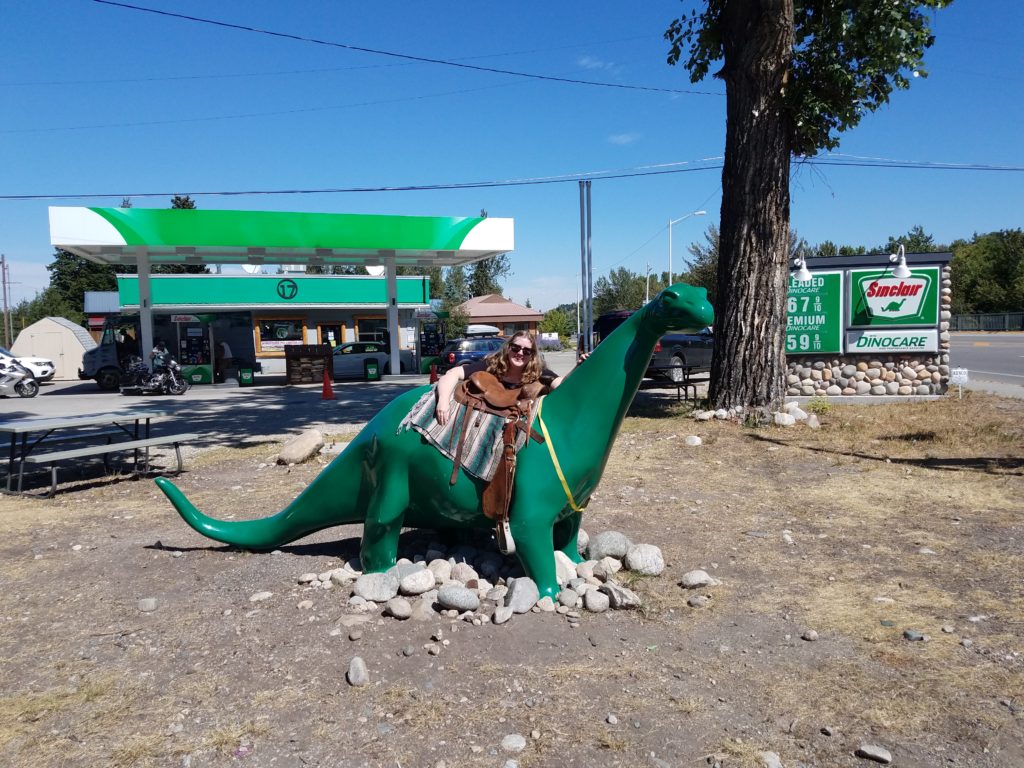
I don’t talk about these things because I enjoy it. Trust me, I’d rather be photographing or knitting or reading or dreaming or living my damn life right now, than talking about humiliating public incidents that stemmed from me doing exactly what thousands and thousands of thin people do all the time (appearing in public).
I’d much rather be writing long blog posts about all the wonderful things I saw and experienced on both my June and September road trips. I’d rather be working on the book I’m trying to write for you that’s a year-long journey and exploration of body image through self-portraiture and journaling.
But here we are, because you need to know. And you just can’t know what it’s like to live in this body, if your body is smaller, unless I share these things.
I don’t share the trolling and harassment I receive as a fat person with you to make you feel sorry for me, or leave me encouraging comments, or bring you down.
I share these things with you because you need to know what kind of abuse fat people live with. You can’t start acting to stop it until you know.
If you don’t receive this kind of treatment online and in public, I’m so relieved for you! But you need to know this treatment exists and is extremely common. And you need to consider using some of the extra resilience you have — because you’re not constantly dealing with this — to help others out who don’t have that advantage.
Now that you know, what are you going to do next?
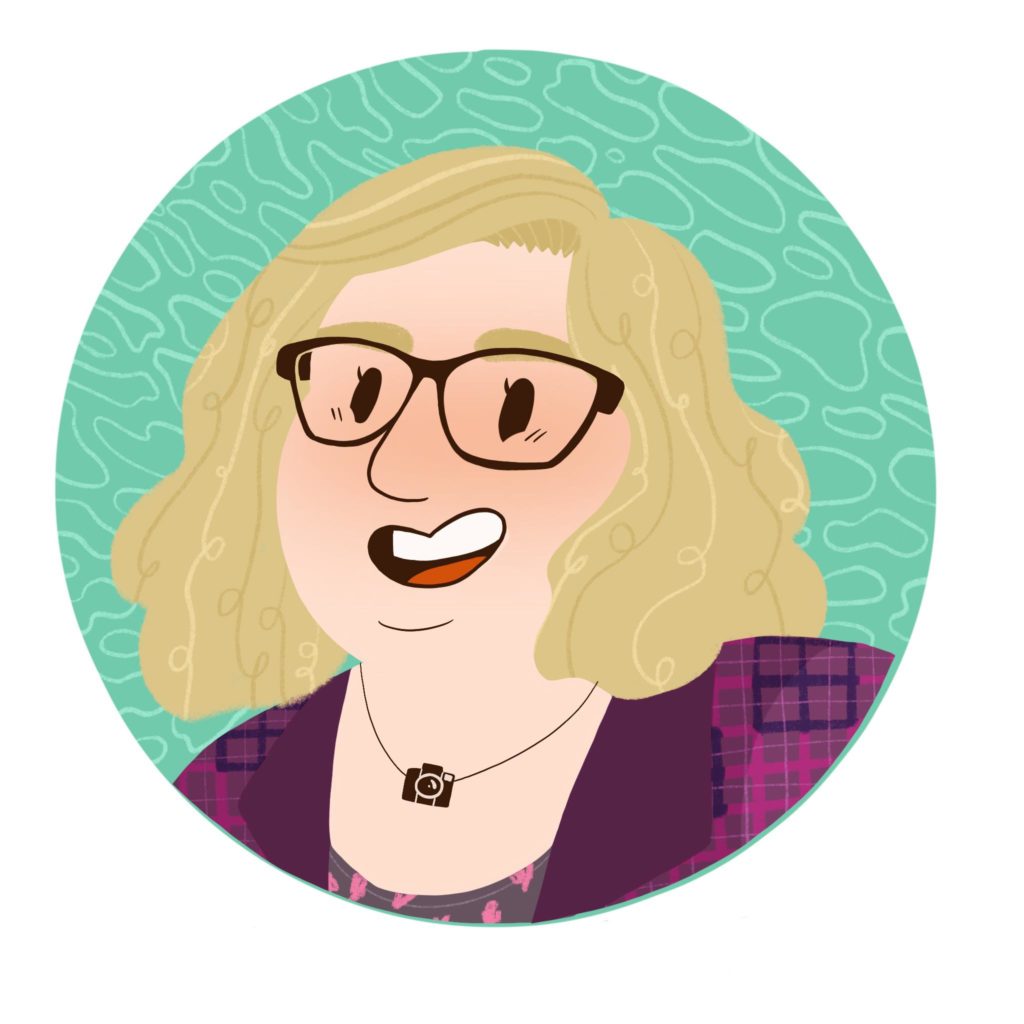
Every Monday, I send out my Body Liberation Guide, a thoughtful email jam-packed with resources on body liberation, weight stigma, body image and more. And it’s free. Let’s change the world together. Subscribe »
Hi there! I'm Lindley. I create artwork that celebrates the unique beauty of bodies that fall outside conventional "beauty" standards at Body Liberation Photography. I'm also the creator of Body Liberation Stock and the Body Love Shop, a curated central resource for body-friendly artwork and products. Find all my work here at bodyliberationphotos.com.

